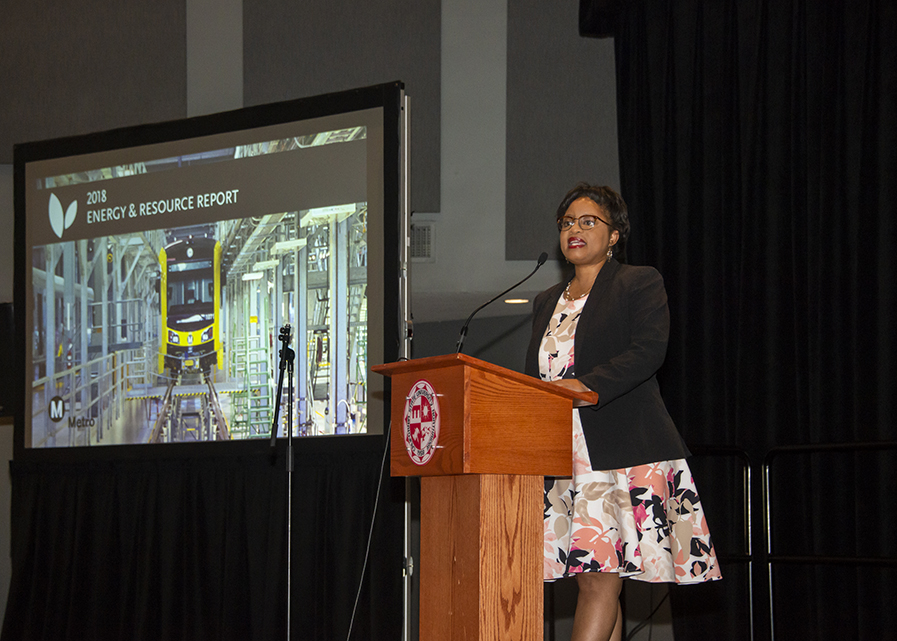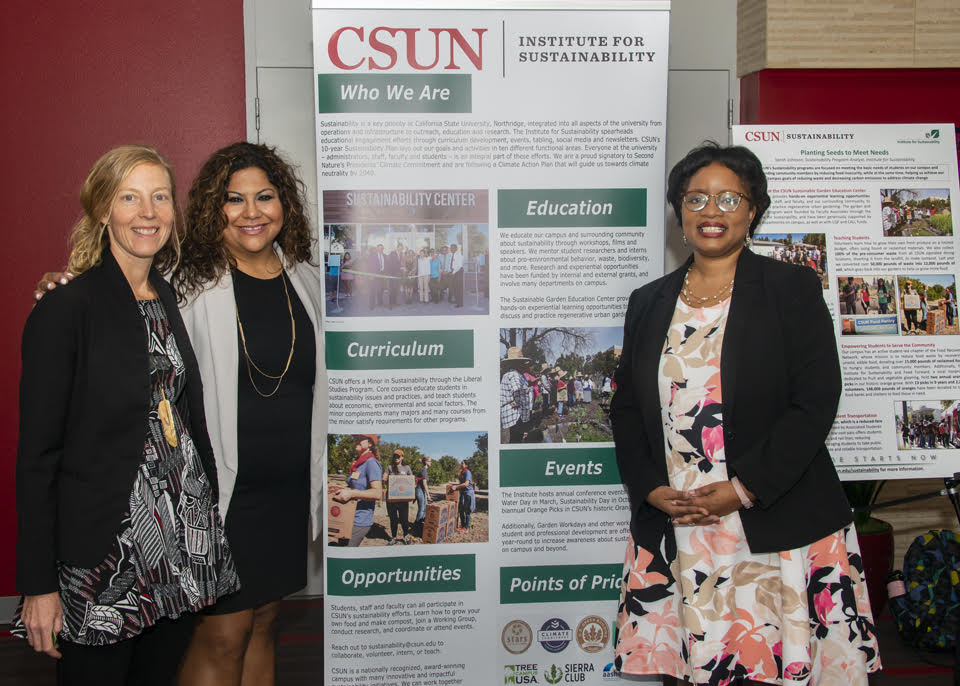Sustainability Day 2018 Drives Home Need for Clean Transportation
New programs are on the way to get more people to use public transportation instead of driving alone. Students, faculty and other members of the CSUN community who attended the 10th Annual Sustainability Day at the University Student Union Northridge Center on Oct. 24 heard about these and other sustainability programs.
The CSUN Institute for Sustainability, in partnership with the Los Angeles Cleantech Incubator (LACI), hosted the full-day event, which focused on the theme of Fueling the Future of Transportation and approaching issues involved with implementing sustainability in disadvantaged communities.
Officials from the Los Angeles Department of Water and Power (LADWP), the Los Angeles County Metropolitan Transportation Authority and the Los Angeles Cleantech Incubator (LACI) all discussed new efforts being made toward creating a sustainable future, including several transportation-focused activities.
Erica Wohldmann, interim director for the Institute for Sustainability and Sustainability Day host, shared her excitement for the future of Los Angeles Transportation, and how the speakers of the day reinforced the commitment to a more equitable and environmentally responsible future.
“‘LA is finally moving away from the 20th Century mentality of gasoline-powered cars occupied by single drivers and into the 21st Century, where taking clean, affordable, convenient electric-powered public trains and buses will become the norm-just like in New York, San Francisco, and many other big cities,” Wohldmann said. “While our program this year focused on efforts aimed at disadvantaged communities, everyone benefits from less congested freeways, cleaner air, and less stressful ways of getting from one place to another.”
The event served as a reminder for attendees to think about sustainability in their own lives. “The question that has always been raised to me is ‘What are YOU going to do about it?’ said Aura Vasquez, commissioner for LADWP. “So I’m constantly thinking, ‘How can I help? Where do I fit in the equation?’”
Vasquez shared a new tool being used by LADWP called Equity Metrics, which is a multifaceted approach to help ensure that all customers are reached with fairness and equity. LADWP hopes to use this data to change its one-size-fits-all approach to providing clean energy and sustainable power for communities.
Stephanie Wiggins, deputy chief executive officer for Los Angeles County Metropolitan Transportation Authority, briefly went over the Metro 2018 Energy & Resource Report and how the organization aims to reach a zero emission transportation fleet by 2030.
Wiggins also showcased a just-launched Metro venture called MicroTransit, a pilot project that aims to combine elements of ride sharing services with public transportation. The project involves developing a program to allow Metro riders to use transit vehicles that follow turn-by-turn instructions for short rides (20 minutes or less) to their destinations or to a metro bus line or rail service. Wiggins says that the project is an effort to bring Metro services closer to communities that might not have direct access to them. Metro plans to unroll the program for its initial trial run early next year at locations that have not yet been determined by Metro and its project consultants.
Vasquez also discussed other ways LADWP is trying to bring cleaner energies to disadvantaged communities, such as making solar energy a possibility for renters in 2019, creating 10,000 electric vehicle charging stations throughout the city and providing incentives to those who purchase an electric car.
Those in attendance also heard from Kelly Schmandt Ferguson, director of the Santa Barbara and Ventura counties region of LACI. LACI partners with environmentally conscious startup companies to make the clean technology industry more publicly accessible.
Ferguson encouraged students to visit LACI’s Downtown LA Advanced Prototyping Center, where people can register for a membership and have access to several labs and tools to create prototypes to help make their innovation dreams a reality.
Finally, students and staff were able to see the sustainability efforts being made on campus firsthand with a tour of the CSUN Sustainability Center.
Those interested in boosting their own sustainability efforts can visit https://www.csun.edu/sustainability for more information on how to get involved.





 experience
experience